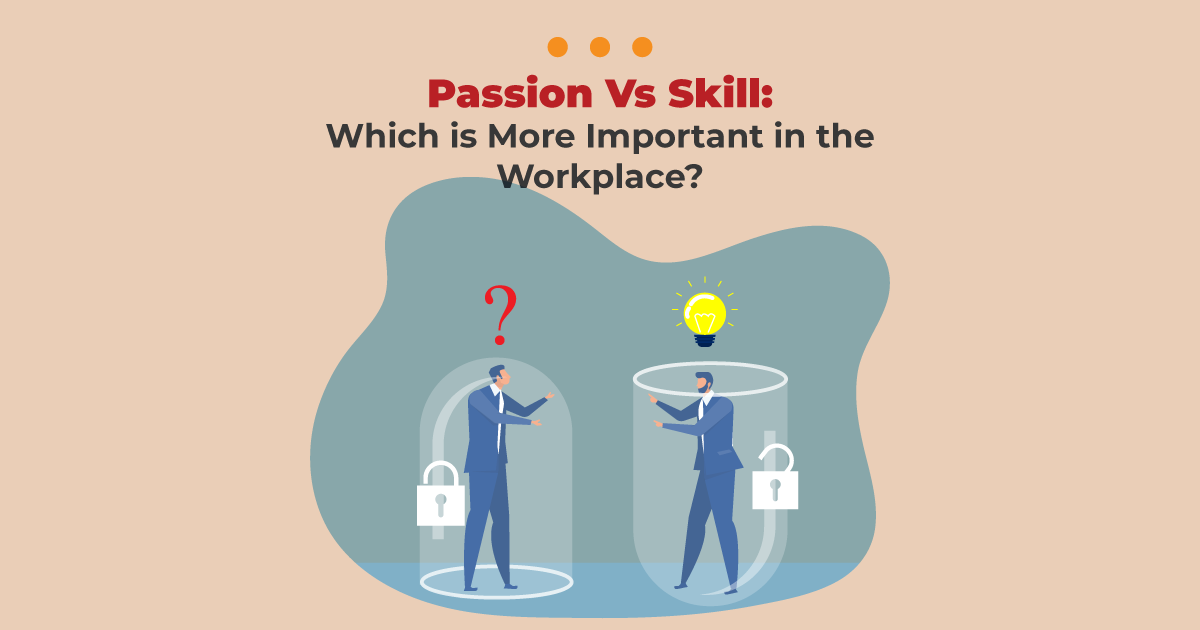Are you passionate about your work? According to a recent poll, 96% of people believe that it’s important to be passionate about their work. But is passion really necessary for a successful career? Some may argue that it’s more important to be skilled and knowledgeable in your field than to be passionate. What does that mean for you?

When it comes to our careers, we all want to feel passionate about what we do. After all, if we’re not passionate about our work, then what’s the point? We spend the majority of our lives working, so it only makes sense that we want to enjoy it.
Interestingly, though, some believe that passion isn’t necessary for a successful career. They may argue that it’s more important to be skilled and knowledgeable in your field than to be passionate. But does passion really matter? Or is it just a nice-to-have?
Should you start looking for something else if you’re currently in a job that you’re not passionate about? Or if you’re not passionate about your field of work, does that mean you’re doomed to a life of unhappiness? Not necessarily.
There are many factors that contribute to a successful career, and passion is just one of them. While it’s great to be passionate about your work, it’s also important to be skilled and knowledgeable in your field. After all, if you’re not good at what you do, it’ll be difficult to find success.
Table of Contents
What Comes First: Passion Or Skill?
So which is more important? Passion or skill? The answer may vary depending on who you ask. But ultimately, it’s up to you to decide what matters most to you. If you’re passionate about your work but don’t have the skillset to back it up, then you may need to acquire some new skills. On the other hand, if you’re skilled in your field but not passionate about it, then you may need to find a way to ignite your passion.
No matter what path you choose, remember that both passion and skill are important in the workplace. So find what works best for you and go after it.

What is Passion in the Workplace?
Passion is defined as “a strong and barely controllable emotion.” In the context of the workplace, passion can be a great motivator. It can help you push through difficult tasks and stay focused on your goals. When you’re passionate about your work, you’re more likely to put in the extra effort to get the job done right.
Why Does It Matter?
Passion is important because it can help you achieve success in your career. If you’re passionate about what you do, you’re more likely to put in the extra effort to get the job done right. Passion can also help you stay motivated and focused on your goals. So if you’re not passionate about your work, it may be time to find a new job or career path.
How Do I Find My Passion?
If you’re not sure how to find your passion, there are a few things you can do. First, think about what you enjoy doing. What are your hobbies? What activities make you happy? Once you’ve identified some potential areas of interest, try exploring them further. If one of your hobbies is cooking, for example, you could try taking a cooking class or reading a cookbook.

You can also look to your role models for inspiration. Who do you admire? What do they do for a living? What qualities do they have that you would like to emulate? By thinking about the people you admire, you may be able to find some clues about what you’re passionate about.
Finally, don’t be afraid to experiment. Trying new things is a great way to find out what you like and don’t like. So if you’re not sure what you’re passionate about, go out and explore! Try different jobs, hobbies, and activities until you find something that feels right for you.
Why Skills Are Important in the Workplace
While passion is important, skills are also essential in the workplace. After all, if you’re not good at what you do, it’ll be difficult to find success. That’s why it’s important to focus on developing your skillset. Whether you’re a recent graduate or a seasoned professional, there are always ways to improve your skills.
One way to develop your skills is to get training or education in your field. If you’re new to the workforce, this may mean going back to school or taking some courses. If you’ve been working for a while, you can still take classes or get certifications to improve your skills.

Another way to develop your skills is to practise and learn from experience. The more you do something, the better you’ll become at it. If you want to improve your skills, make sure to practise as often as you can. You can also learn from your mistakes and use them as an opportunity to grow.
Finally, don’t forget to network! Connecting with other professionals in your field is a great way to learn new things and develop your skills. Attend industry events, join professional organizations, or simply reach out to people you know. By networking, you can gain valuable insights into your field and learn from the people who know it best.

When it comes to passion vs. skill, both are important in the workplace. Passion can help you stay motivated and focused on your goals, while skills are essential for achieving success. So find what works best for you and go after it!
What are your thoughts? Do you think passion is necessary for a successful career? Or do you believe that skill and knowledge are more important?
Is passion at work important to you? Let us know in the comments below.
If you enjoyed this article, feel free to share it with your friends and colleagues. Thanks for reading!





